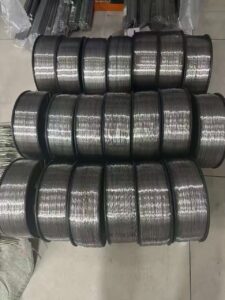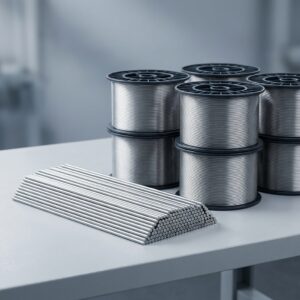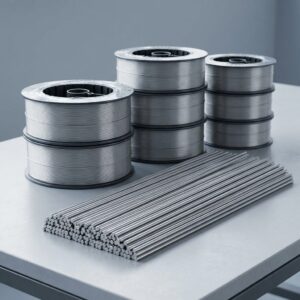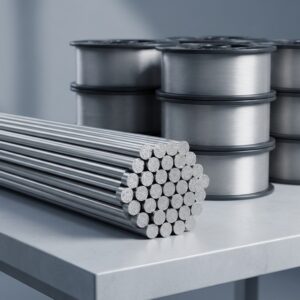Unveiling the Marvels of 16MnCr5/1.7131 Alloy Steel: A Comprehensive Exploration
Introduction
In the vast landscape of metallurgy, certain alloys stand out as shining examples of innovation and engineering excellence. One such marvel is 16MnCr5/1.7131 Alloy Steel, renowned for its exceptional strength, toughness, and versatility. Join us as we embark on a journey to uncover the intricacies and advantages of this remarkable alloy, delving into its composition, properties, applications, suppliers, pricing, and expert insights.
Overview of 16MnCr5/1.7131 Alloy Steel
16MnCr5/1.7131 Alloy Steel belongs to the family of chromium-manganese-carbon steels, characterized by their high strength, toughness, and wear resistance. Let’s dive into the key details of this alloy:
Chemical Composition
| Element | Percentage |
|---|---|
| Carbon (C) | 0.14-0.19% |
| Silicon (Si) | 0.15-0.40% |
| Manganese (Mn) | 1.00-1.30% |
| Phosphorus (P) | ≤ 0.025% |
| Sulfur (S) | ≤ 0.035% |
| Chromium (Cr) | 0.80-1.10% |
Mechanical Properties
- Tensile Strength: 700-850 MPa
- Yield Strength: 500-700 MPa
- Elongation: 16-20%
- Hardness (Brinell): 170-215 HB
Standards
- EN 10084: Case hardening steels – Technical delivery conditions
- DIN 17210: Case hardening steels – Technical delivery conditions
Exploring the Features and Advantages
16MnCr5/1.7131 Alloy Steel boasts a plethora of features and advantages that make it a preferred choice in various applications:
Features
- High strength with moderate ductility and toughness
- Excellent wear resistance and surface hardness
- Good machinability and weldability
- Suitable for induction hardening and nitriding
- Uniform hardness distribution after heat treatment
Advantages
- Ideal for gears, shafts, and other components subjected to high surface pressures
- Offers good fatigue strength and impact resistance
- Provides reliable performance in demanding environments
- Can be readily machined into complex shapes
- Ensures consistent properties across different production batches
Comparison Between 16MnCr5/1.7131 Alloy Steel and Competing Alloys
Let’s compare the advantages and disadvantages of 16MnCr5/1.7131 Alloy Steel with a competing alloy, 20MnCr5/1.7147 Alloy Steel:
| Parameter | 16MnCr5/1.7131 Alloy Steel | 20MnCr5/1.7147 Alloy Steel |
|---|---|---|
| Carbon Content | 0.14-0.19% | 0.17-0.22% |
| Manganese Content | 1.00-1.30% | 1.00-1.30% |
| Chromium Content | 0.80-1.10% | 0.70-0.90% |
| Tensile Strength | Moderate | Moderate |
| Toughness | Good | Good |
| Hardenability | Good | Good |
Applications and Uses
From automotive to machinery, 16MnCr5/1.7131 Alloy Steel finds widespread application across diverse industries:
| Industry | Applications |
|---|---|
| Automotive | Gears, shafts, camshafts |
| Machinery | Bearings, crankshafts, connecting rods |
| Manufacturing | Tool holders, dies, molds |
Navigating Suppliers and Pricing
Sourcing 16MnCr5/1.7131 Alloy Steel requires careful consideration of reliable suppliers offering quality products at competitive prices:
| Supplier | Price Range (per kg) | Description/Notes |
|---|---|---|
| Thyssenkrupp | $2.50 – $4.00 | Leading global supplier of specialty steel, offering high-quality alloy steel products. |
| Voestalpine | $2.30 – $3.80 | Renowned manufacturer of high-performance steel solutions for various industrial sectors. |
| ArcelorMittal | $2.20 – $3.50 | Global steel giant providing a wide range of alloy steel products with global distribution. |
FAQs about 16MnCr5/1.7131 Alloy Steel
Q: What are the main advantages of using 16MnCr5/1.7131 Alloy Steel?
A: 16MnCr5/1.7131 Alloy Steel offers high strength, good wear resistance, and excellent machinability, making it ideal for gears, shafts, and other mechanical components.
Q: What are the common applications of 16MnCr5/1.7131 Alloy Steel?
A: This alloy steel is commonly used in automotive gears, shafts, and machine components subjected to high surface pressures.
Q: Where can I buy 16MnCr5/1.7131 Alloy Steel?
A: You can source it from reputable suppliers such as Thyssenkrupp, Voestalpine, ArcelorMittal, and others.
Q: What specifications does 16MnCr5/1.7131 Alloy Steel conform to?
A: This alloy steel conforms to standards such as EN 10084 and DIN 17210, ensuring compliance with industry quality requirements.





